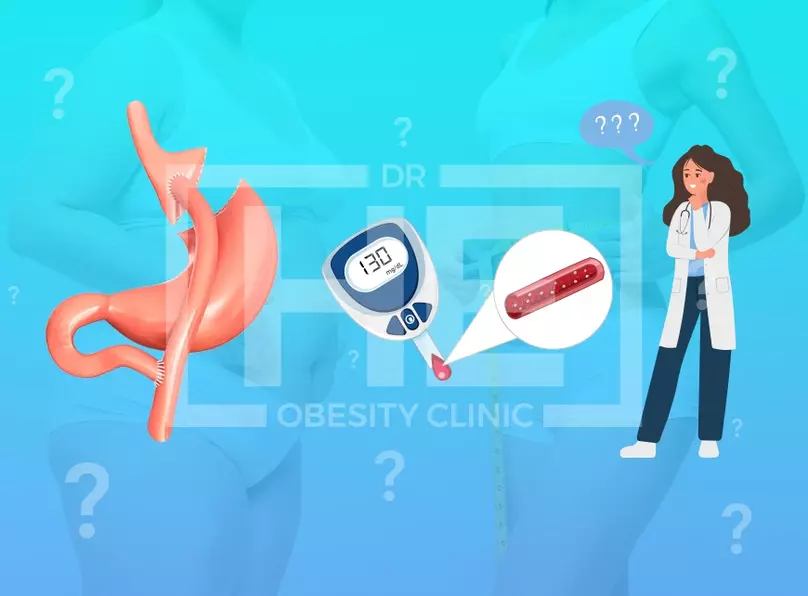Which Doctor Should You Consult For Insulin Resistance?
Which doctor should you consult for insulin resistance? Which doctor should you see for insulin resistance? Which doctor conducts insulin resistance tests? What is insulin resistance, and how can it be treated? In this content, you can find answers to these questions and gain detailed information about this concept closely related to diabetes.
Insulin resistance refers to the reduced sensitivity of the body to insulin, leading to an increase in blood sugar levels. This condition can contribute to various health problems such as type 2 diabetes, heart disease, obesity, and polycystic ovary syndrome. Insulin resistance is often associated with lifestyle factors, genetic predisposition, and obesity.
Individuals with insulin resistance may experience symptoms such as frequent urination, excessive thirst, fatigue, weight gain, abdominal fat accumulation, cravings for sweets, sweating, trembling, palpitations, among others. These symptoms can become more pronounced if blood sugar is not controlled. Early diagnosis of insulin resistance and appropriate treatment methods can help prevent the development of further health issues. Therefore, it is important to consult with a healthcare professional when these symptoms are observed.
Recommended Content : Type 2 Diabetes Surgery In Turkey
Insulin Resistance: What Is It?
Insulin resistance is characterized by a disruption in the biological response of structures such as fat tissue, liver, and muscles to the insulin hormone.
Insulin is one of the hormones produced by the pancreas, located behind the stomach. For the metabolism to function correctly, the insulin hormone needs to be at an ideal level. After a meal, carbohydrates in the food are broken down into small sugars, and glucose, the basis of carbohydrates, is absorbed into the bloodstream. Insulin facilitates the use of this circulating sugar for energy production. However, if the blood sugar rises more than normal, insulin signals the body to store sugar in organs such as the liver and muscles. Between meals and during stressful times, blood sugar levels can drop below normal. In such cases, the body utilizes the previously stored sugar for energy production.
For our body to convert glucose obtained from food into usable energy, it requires insulin. However, if insulin resistance develops in fat and muscle tissues, as well as in the liver, the body cannot efficiently perform the task of converting sugar into energy. This leads to the occurrence of insulin resistance. If left untreated, it can lead to type 2 diabetes and metabolic syndrome. Additionally, insulin resistance is associated with various serious health problems such as hypertension, atherosclerosis, heart disease, polycystic ovary syndrome (PCOS), high cholesterol, and obesity.
Insulin Resistance Test: What Is It?
Which doctor performs the insulin resistance test? The insulin resistance test measures blood sugar and insulin levels through a blood test. To undergo this test, it is necessary to consult the endocrinology or internal medicine department at a healthcare facility. The endocrinology department specializes in hormonal disorders and metabolic disorders, while the internal medicine department deals with diseases affecting all organs and systems in the body. These specialists are experts in the diagnosis, treatment, and monitoring of insulin resistance.
The insulin resistance test helps determine the presence of insulin resistance by measuring both blood sugar and insulin levels. This test is crucial for early diagnosis and the determination of an appropriate treatment plan. Based on the test results, healthcare professionals can guide individuals on necessary treatments and lifestyle changes. Therefore, it is important for individuals at risk of insulin resistance to undergo this test regularly.
What Causes Insulin Resistance?
The primary factors contributing to insulin resistance include:
– Excess weight
– Lack of physical activity
– Polycystic ovary syndrome
– Vitamin D deficiency
– Diabetes
Which Doctor to Consult for Insulin Resistance?
As soon as symptoms of insulin resistance are noticed, it is essential to consult an endocrinologist or an internist.
Symptoms of Insulin Resistance:
– Cravings for sweets
– Inability to lose weight despite eating little
– Irregular menstruation
– Feeling tired upon waking up in the morning
– Difficulty in perception and concentration
– Feeling faint
– Trembling in hands and feet
– Frequent hunger and fast eating
– Sleepiness after meals
– Excessive hair growth
– Excessive and rapid weight gain
How Is Insulin Resistance Diagnosed?
The main diagnostic tests for insulin resistance are insulin resistance analysis and fasting plasma glucose test. The “glucose tolerance test” may also be performed to assess changes in insulin values with respect to blood sugar.
Other diagnostic methods include:
– HbA1c test
– OGTT (Oral Glucose Tolerance Test)
– Fasting plasma glucose test
How Is Insulin Resistance Treated?
Insulin resistance treatment methods generally rely on lifestyle changes. Some of these changes include:
– Choosing foods rich in fiber
– Balancing daily calorie intake
– Avoiding high glycemic index foods
– Creating a healthy eating program by regulating the consumption of each food item according to a personalized plan
– Avoiding fried products, processed meats, ready-made foods, and foods containing trans fats
– Engaging in brisk walking, regular exercise, and establishing an ideal sleep routine
In addition to these, medications that regulate insulin hormone levels may be used in treatment.




 Türkçe
Türkçe  Deutsch
Deutsch  Français
Français  Español
Español  Русский
Русский  Nederlands
Nederlands  български
български  Português
Português  Română
Română  العربية
العربية






